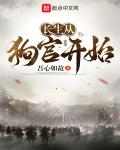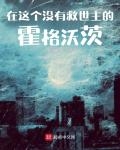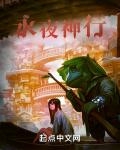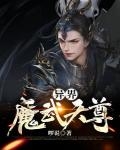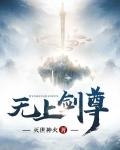Chapter 200: Confucian debate, the concept of nation!
"What do you think about this matter?" Su Che looked at the old man opposite and asked with a smile, while handing over the memorial in his hand.
The old man sitting opposite Su Che had dark skin and gray hair and beard. At this moment, he lowered his head and stretched out his hand, respectfully taking the memorial.
His hands were as rough as old pine bark, with cracks all over them and thick calluses on the palms. At first glance, they were the hands of an authentic old farmer.
But such a person was the newly-promoted aristocrat of the Ming Dynasty, the honorable Duke Wenxuan Kong Xilu.
Since being conferred the title of Duke Wenxuan, Kong Xilu arranged all matters at home and came to Yingtian Prefecture specifically to thank the Emperor for his grace.
When Su Che saw Kong Xilu, he thought he was just an ordinary old man.
Unexpectedly, after a conversation, Su Che was surprised to find that this old man was actually quite capable!
His thoughts and theories are completely different from the so-called Confucianism today, and are closer to the original Confucius teachings - the way of the great way is to make the world a shared future for all.
More ideal and purer.
Since China experienced the Five Dynasties and Ten Kingdoms, Song Dynasty and Yuan Dynasty, Confucian culture has been constantly misinterpreted and distorted, and finally became what it is today during the Ming and Qing Dynasties.
During the Han and Tang dynasties, Confucian culture was prevalent, but the social atmosphere was extremely open and free.
On the contrary, as time goes by in modern times, the so-called feudal ethics emerge in an endless stream, and the society has gradually turned into an old cannibalistic society.
Confucianism during this period had become a mixture of patriarchal authority, bureaucratic habits, local customs, and the dregs of Song and Ming Neo-Confucianism. It was then wrapped in the skin of a book of sages and misinterpreted as the teachings of the sages, but it was nothing more than a twisted freak.
This distorted Confucianism has completely deviated from its original path. They have taken advantage of all the virtues of ethics and then shamelessly draped the four words "benevolence, righteousness, and morality" on themselves, using them as their invincible weapon.
Such Confucianism shattered the pure ideal world of the pre-Qin period and gradually made Confucius an old-fashioned being hated by everyone.
This situation had already begun to show signs as early as the Song Dynasty. Cheng-Zhu Neo-Confucianism was the origin of the entire poison, and it was further intensified later.
Even the philosophy of mind of the sage Wang Mingyang failed to set things right.
What exactly is the so-called Cheng-Zhu Neo-Confucianism?
This is a new Confucianism founded by Zhou Dunyi, Zhang Zai, Shao Yong, the two Cheng brothers and others, and developed by Zhu Xi, and passed down by the school of Zisi and Mencius.
The two Cheng brothers placed more emphasis on reason. Their doctrines laid the foundation of Taoism with the "mystery of heart transmission" and regarded "reason" as the highest category, so it is also called Neo-Confucianism.
Its core idea is "preserve the principles of heaven and eliminate human desires", which was later inherited and developed by Zhu Xi, so later generations called it the Cheng-Zhu School.
This school of thought is a very complete theoretical system, which directly influenced the development of China.
Since the Yuan Dynasty, Cheng-Zhu has been established as the official ideology by emperors of all dynasties.
Because this new Confucianism perfectly adapted to the transition to centralization in feudal society, it gradually became a political philosophy.
The ideas of "Three Bonds and Five Constant Virtues" and "loyalty to the emperor and patriotism" repeatedly emphasized by Cheng and Zhu provided detailed theoretical guidance for the emperor's autocratic rule and became the spiritual pillar of the dynasty's rule!
To put it bluntly, Cheng-Zhu was an ideological tool used by emperors to paralyze the people of the world.
Loyalty to the emperor and love for the country, the Three Bonds and Five Constant Virtues, preserving the principles of heaven and eliminating human desires...
Although the importance of Cheng-Zhu to the stability of the country is self-evident, its constraints and confinement on the people's thoughts are also obvious.
This set of theories has suppressed people's thinking and made people all over the world numb.
Su Che naturally didn't like this kind of theory, so he abolished the North Kong and enthroned the South Kong in order to find a breakthrough.
In history, Zhu Yuanzhang was more direct than Su Che.
In the second year of Hongwu, he issued an edict that "the spring and autumn sacrifices to Confucius Temple should only be held in Qufu, and there is no need to hold the sacrifices throughout the country."
To put it bluntly, people all over the world do not need to worship Confucius, they only need to worship in Qufu.
However.
When this decree was issued, there was an uproar in the court and the country. Everyone was crying and making a fuss, as if it was a funeral at home. For a moment, the entire court came to a standstill.
Under pressure, Lao Zhu had no choice but to revoke his decision.
Then he turned his gaze to Mencius.
What is Mencius' theory?
Confucius said in "The Analects": "A ruler should treat his ministers with courtesy, and a minister should serve his ruler with loyalty."
Subjects must be loyal to their monarch, and the monarch must treat his subjects with courtesy.
But he did not say, if the monarch does not treat his ministers with courtesy, what should the ministers do?
Mencius explained it for him:
If the monarch treats his subjects as his own hands and feet, then the subjects will treat the monarch as their own heart and soul; if the monarch treats his subjects as dogs and horses, then the subjects will treat the monarch as their fellow countrymen; if the monarch treats his subjects as dirt, then the subjects will treat the monarch as their enemy!
The original intention of these words was to start from the perspective of people-centeredness. He did not advocate that the people of the world should be loyal to one family or one person. If the emperor could not protect the people, then everyone in the world could kill him.
This is the core idea of Mencius.
After that, Zhu Yuanzhang organized people to revise "Mencius" and deleted content such as "people are the most important, the country is second, and the king is the least important."
The reason why Zhu Yuanzhang was so opposed to Mencius is actually very simple.
It is not for the so-called selfish desires or for the stability of one's own regime.
Rather, he saw through the essence of these words and recognized the true reality.
The people are the most important, the country is second, and the king is the least important.
This sentence sounds like there is nothing wrong with it, it's simply great.
But the problem is that this can only be said by ordinary people!
Once other people say it, it’s a different story.
For example, those civil service groups said this.
Why should civil servants speak on behalf of the people and what is their real intention?
But the question is... do ordinary people have a say? Obviously not.
In addition, from the perspective of the civil service group, there is an even more problematic issue - are you, the civil servants yourself, valuable or insignificant?
The essence of this society is not composed of the people, the country, and the monarch, but of the people, the country, the bureaucracy, and the monarch.
After Mencius omitted the bureaucratic group, this sentence left room for distortion and exploitation.
This sentence puts the civil service group in the position of the final judge, allowing the civil service group to grasp the right to represent the "people" and thus creating an opposition between the monarch and the people.
In other words, those who always say "the people are more important than the emperor" will naturally become "the people are less important than the officials" once they have control over the imperial power.
The Song Dynasty is such an example.
The emperor and the scholar-officials shared the world - the civil officials were corrupt and unbridled, lost power and humiliated the country, levied heavy taxes, and used the most brutal tortures to suppress the resistance of the people.
The final result is that the people, the country, and the emperor all suffer.
The Yuan Dynasty is also a good example.
The Yuan Dynasty’s system was essentially a state based on the Confucian idea that “the people are more important than the emperor.”
The Yuan Dynasty's tax-farming system only required money and did not interfere in local governance. This high degree of autonomy can be said to be the system that many people dream of.
In addition, the Yuan Dynasty was an era when Confucianism was extremely free and open.
Kublai Khan himself showed great respect to Confucian masters. In addition to appointing Confucian masters to very important positions, he also gladly accepted the title of "Great Master of Confucianism" and sincerely accepted the Confucian principles of governing the country and the world, such as "Three Bonds and Five Constant Virtues" and "Right Mind and Sincerity" taught to him by the great Confucian scholars.
Cheng-Zhu Neo-Confucianism even directly became the official ideology of the Yuan Dynasty.
But the final result was the peasant uprising at the end of the Yuan Dynasty. As a peasant emperor who truly rose from the bottom of society, Zhu Yuanzhang naturally understood the essence of the Confucian rhetoric of "the people are more important than the emperor."
In the eyes of those who always say "the people are more important than the king", are Zhu Yuanzhang's dead family considered "the people"?
Obviously not.
What kind of people are they if they cannot speak out?
What Confucian scholars call the people's will has always referred to those who have the right to speak.
Many people believe that Zhu Yuanzhang was a cruel ruler and a complete dictator because he deleted Mencius’s words “the people are more important than the king”.
However, some things are not that simple.
Because there are lessons and conclusions from the previous two dynasties.
Faced with many problems in this regard, Zhu Yuanzhang has been trying to make changes.
Unfortunately, even Zhu Yuanzhang couldn't find a solution no matter how hard he tried.
This is the limitation of the times.
Zhu Yuanzhang tried to struggle, but there was very little he could do.
And Su Che is also making his own attempts.
I just don’t know whether these attempts will be successful?
He looked at Duke Wenxuan Kong Xilu. In this old man, Su Che saw a little shadow of pre-Qin Confucianism. He was not a Confucian of "Cheng-Zhu Neo-Confucianism", which was good news.
Kong Xilu looked down for a long time, then raised his head and said: "Compassion is the beginning of benevolence; shame and disgust is the beginning of righteousness; resignation is the beginning of propriety; right and wrong is the beginning of wisdom. Your Majesty's founding nobles can feel compassion and do good deeds because of the sacrifice, so they can be called benevolent and righteous ministers. This is a great act of kindness."
This evaluation is quite high. Su Che nodded and continued, "I held the sacrifice not to enlighten them, but to do other things. This is like planting willows without intention and getting a good result."
After a pause, Su Che continued, "After the Song Dynasty, Confucianism was divided into two schools, one is Cheng Zhu, and the other is Lu Jiuyuan. The disadvantage of Cheng Zhu is that he is rigid, while the disadvantage of Lu Jiuyuan is that he is free."
"In the field of Confucianism today, there is still a dispute between Cheng Zhu and Lu Jiuyuan. What do you think, sir?"
Kong Xilu lowered his eyes slightly, thought for a moment, and said: "Since the Yuan Dynasty, Cheng-Zhu Neo-Confucianism has been popular, causing women to completely lose their status and become vassals, gradually turning into a folk custom of favoring boys over girls."
"But even so, the status of most men has not been improved, and their property belongs to the clan, so both men and women are part of the oppression."
"I think the saying 'preserve the laws of nature and eliminate human desires' is too idealistic and unrealistic. Human desires cannot be suppressed."
"The more a desire is suppressed, the stronger, more twisted, and more cruel it becomes."
"Its essence... is no different from a scourge beast."
"As for Lu's philosophy of mind, I think it is close to Zen and is not the mainstream, but a deviation."
Although Kong Xilu spoke slowly, his tone was very loud.
In his view, Zhu Xi and Cheng Yi's Neo-Confucianism was a scourge, while Lu Jiuyuan's philosophy of mind took a detour.
These people are all great Confucian sages and their status is extraordinary.
The so-called School of Mind later had a master named Wang Yangming, whose thought was the result of the debate between Zhu Xi and Lu Xi.
Yangming's philosophy of mind is both a continuation and development of Lu Jiuyuan's philosophy of mind, and can also be seen as a synthesis of Zhu Xi's and Lu Jiuyuan's theories.
The founder of the School of Mind, Lu Jiuyuan, believed that "mind" is the origin of all things in the universe.
He proposed the idea that "heart" is "reason", emphasized that "the universe is my heart, and my heart is the truth", and believed that the heaven, earth and all things are in the heart.
Therefore his doctrine is called "Xinxue".
Lu Jiuyuan believed that one does not need to seek the truth outside, but can obtain the truth of heaven by simply reflecting on one's inner self.
Lu Jiuyuan had many debates with Zhu Xi, the scope of the debates covered all the core issues of Neo-Confucianism, and the impact of the debates also involved many schools of thought at the time.
The debate between Zhu and Lu, as well as the debate on the similarities and differences between Zhu and Lu by later scholars, has lasted for thousands of years.
But in the eyes of Kong Xilu, the 56th generation of Confucius, these two factions were both pagans!
Su Che smiled maliciously when he heard this, and said quickly, "Please teach me, sir!"
Kong Xilu even said he didn't dare, then lowered his head and began to explain his understanding of "Confucianism".
Kong Xilu is a retro Confucianist. His Confucianism is relatively traditional, and the contents are things that Su Che has already understood a long time ago. But even so, Su Che still listened very seriously.
After a while, when Kong Xilu finished speaking, Su Che stood up respectfully and bowed seriously with a very proper gesture.
This made Kong Xilu feel that his life and pursuits had reached their peak. Wasn't the ultimate goal of the ancient literati to be the "Emperor's Teacher"?
Kong Xilu's dark face flushed slightly, and he bowed deeply in return.
Su Che smiled and said, "Sir, I agree with what you said. Today's Confucianism has gone astray and should be put right."
"But... we think we should add something else."
Kong Xilu said quickly: "Your Majesty, please speak."
Su Che thought for a moment and said, "In the pre-Qin period, Confucius, Mencius and Xunzi put forward a series of views on the issue of barbarians and Chinese based on the situation at the time and on the basis of the early views on barbarians and Chinese. On the one hand, they emphasized the distinction between barbarians and Chinese, strictly guarded against barbarians and Chinese, and advocated respecting the king and expelling the barbarians."
"On the other hand, he advocated changing the barbarians into Chinese by using Chinese culture, and distinguishing between Chinese and barbarians by using 'rituals', and yearned for a unified situation in which Chinese and barbarians were one and the world was one family."
Su Che talked about the situation of "distinguishing between barbarians and Chinese", which was a cliché. Kong Xilu on the side was stunned for a moment. He listened for a long time but didn't understand what His Majesty wanted to say.
After a while, Su Che expressed his opinion, and the real purpose was revealed.
Su Che said: "But countless years have passed since the pre-Qin period. We think this statement needs to change. It is no longer based on 'ritual' to distinguish between Chinese and barbarians. Instead, it should not be limited to regions, ethnic groups, officials and civilians. As long as there are 'same myths', 'shared history' and 'common culture', they are all Chinese ethnic groups."
"As long as we have a common past, we are the same nation."
Kong Xilu listened to Su Che's words, and obviously hadn't realized the key point yet. He nodded subconsciously: "Your Majesty, what you said makes sense."
Su Che smiled slightly and said to himself: "Yes, that's what I plan to do..."
Historically, Zhu Yuanzhang once said: "The Mongols are also my people."
He married captured Mongolian women with Han people and treated them equally.
However, Su Che planned to go further than Zhu Yuanzhang.
He wants to thoroughly strengthen the concept of "nation"!
In ancient times, the concepts of Yi and Xia, Hu and Han were somewhat different from the modern concept of nation.
This is generally called proto-nationalism, which has something in common with nationalism but has not developed into full nationalism.
What Su Che was going to do was to fully demonstrate the concept of "nation"!

